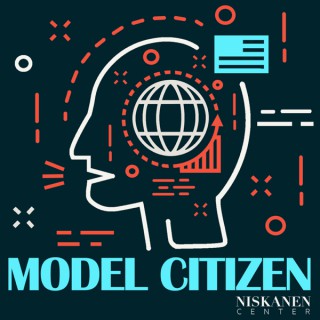Podcast appearances and mentions of Matthew W Stirling
- 4PODCASTS
- 4EPISODES
- 40mAVG DURATION
- ?INFREQUENT EPISODES
- Dec 15, 2020LATEST
POPULARITY
Latest news about Matthew W Stirling
- Impressive Illustration by Miguel Covarrubias in the 1920s and ’30s Vintage Everyday - Jun 14, 2024
- That Little Omission in the Constitution Balkinization - Mar 9, 2024
Latest podcast episodes about Matthew W Stirling
U.S. Electoral College; federal climate plan - impact on Alberta; need for rapid COVID-19 testing
Today's guests Alexander Keyssar, Matthew W. Stirling Jr. Professor of History and Social Policy - Harvard Kennedy School / Author: "Why Do We Still Have the Electoral College?" Max Fawcett, writer/columnist Dr. Kashif Pirzada is an Emergency Physician in Toronto, is affiliated with McMaster University and the University of Toronto, and is co-chair of Masks for Canada See omnystudio.com/listener for privacy information.
On the eve of the election, we explore the history of how the U.S. created and maintained such a convoluted and undemocratic process called the Electoral College for electing the president. Special guests include Alex Keyssar, Matthew W. Stirling Jr. Professor of History and Social Policy at Harvard Kennedy School, and Kieran Jacobson, AP Comparative Government and Politics teacher at Eastlake High School.
If winning the most votes made you president, Joe Biden would have it in the bag by now. But voters don't get to pick the president here in America. The Electoral College does. Which is why Biden's supporters can't rest easy, even though it's a lock that he'll win the popular vote. Donald Trump, who lost the popular vote by nearly 3 million votes, owes his presidency this baffling, archaic kludge of an institution and he's still got an outside shot at a second term because of it. So why did our blessed Founders saddle us with the Electoral College? Why is it still there, despite many efforts through the years to reshape or kill it? This week's guest, Alexander Keyssar wrote a book, "Why Do We Still Have the Electoral College?" to answer precisely this question. We discuss how the Electoral College was a makeshift afterthought compromise at the Constitutional Convention, how its half-baked rules of the Electoral College almost immediately threw presidential elections into disarray, how it spurred the creation of political parties (despite the Founder's intentions), why the states converged on winner-take-all rules for the allocation of electoral votes rather than settling on district-based or proportional schemes, and much more. Why did later attempts to replace the Electoral College with a national popular vote fail? Are future attempts incredibly unlikely, or is it much more likely than you think? We talk about that, too. Alexander Keyssar is the Matthew W. Stirling Jr. Professor of History and Social Policy at the Harvard Kennedy school for government. He's the author of many distinguished works of history, including the "The Right to Vote: The Contested History of Democracy in the United States," a finalist for the Pulitzer Prize. ---Why Do We Still Have the Electoral College by Alexander KeyssarHost: Will Wilkinson (@willwilkinson)Audio engineer: Ray IngegneriMusic: Dig Deep by RW SmithModel Citizen is a production of the Niskanen Center (@niskanencenter)To support this podcast or any of the Niskanen Center's programs, visit: https://niskanencenter.org/donate
218 If the Electoral College is a racist relic, why has it endured?
This is the first episode of PolicyCast's 2020-2021 season. Alexander Keyssar is the Matthew W. Stirling Jr. Professor of History and Social Policy at Harvard Kennedy School. An historian by training, he specializes in the exploration of historical problems that have contemporary policy implications.In this episode, Professor Keyssar discusses his new book: "Why Do We Still Have the Electoral College?" (Harvard University Press, 2020) He is also the author of the widely-read book: "The Right to Vote: The Contested History of Democracy in the United States" (Basic Books, 2000), for which he was named a finalist for the Pulitzer Prize.PolicyCast is hosted by Thoko Moyo, the associate dean for communications at Harvard Kennedy School. The podcast is produced and engineered by Ralph Ranalli and co-produced by Susan Hughes.







